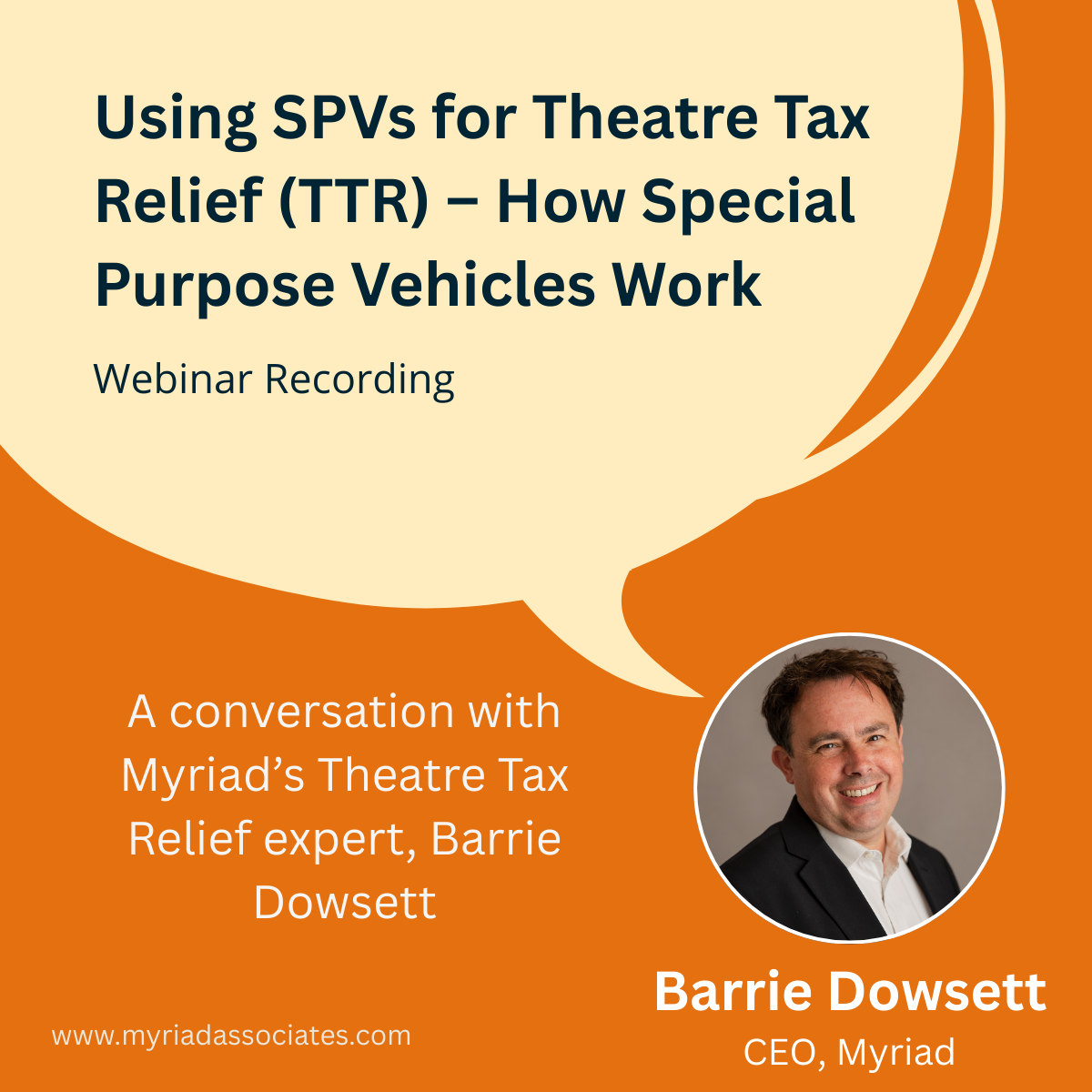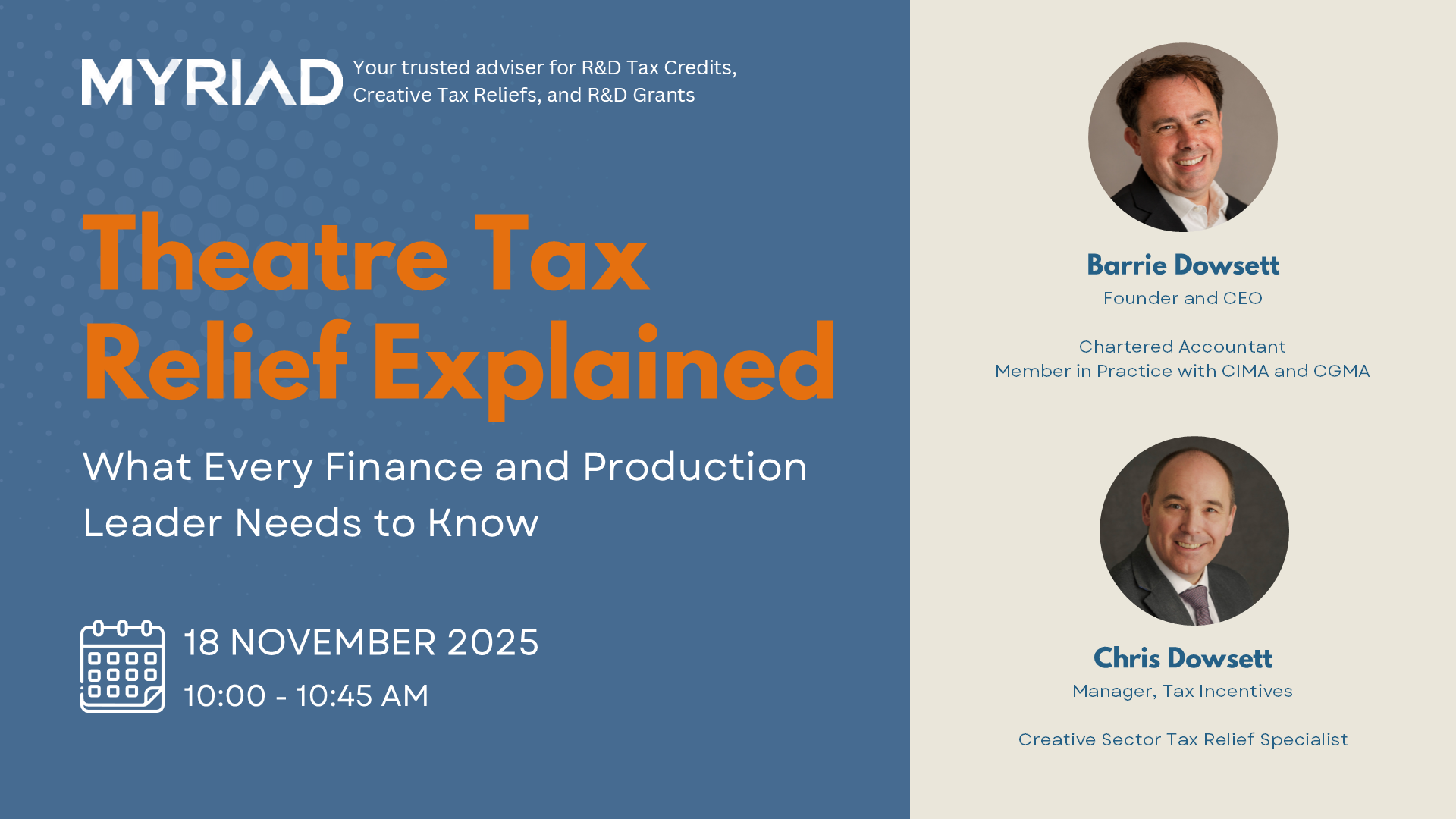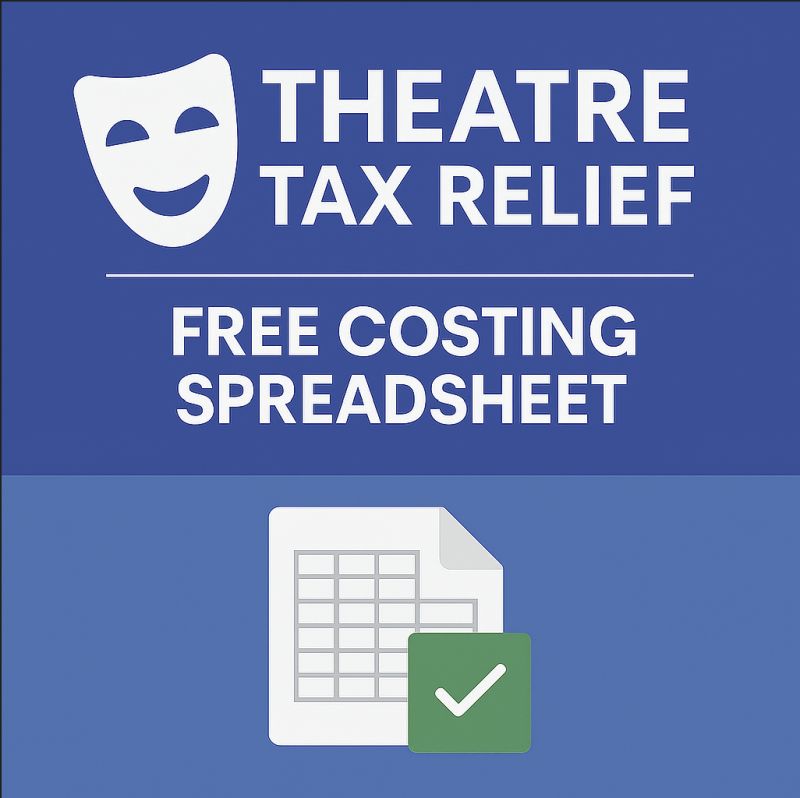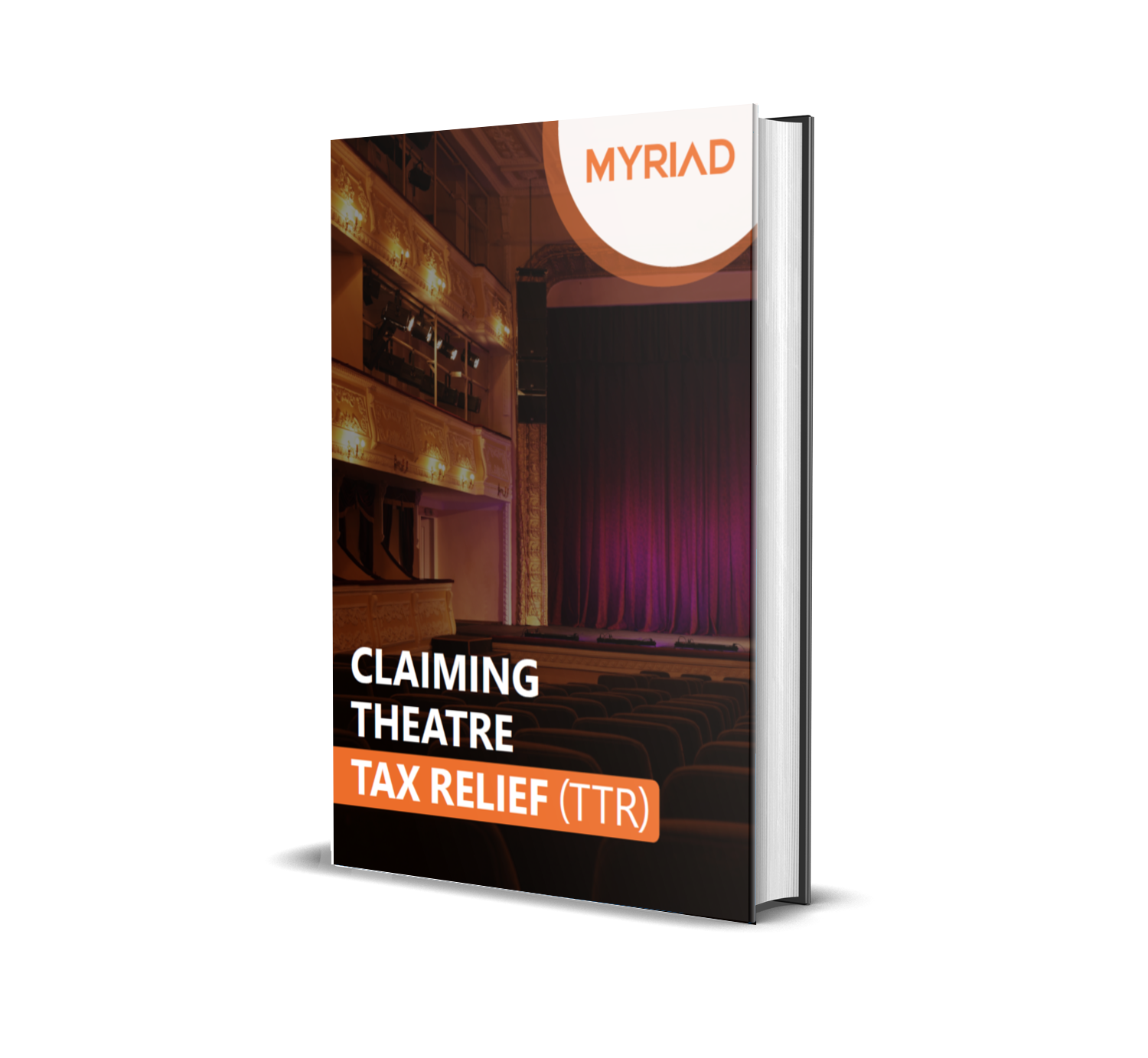Theatre Tax Relief is a government initiative that provides funding for producing a play, opera, musical, ballet or other dramatic piece that tells a story. Theatre Tax Relief is currently worth up to 40% of core production costs.

Theatre Tax Relief (TTR) is a creative industry tax relief incentive, funded by the UK government. It is claimed through a company's Corporation Tax Return (CT600) and serves to support the arts and reward the UK's creative sector for its UK spending.
TTR offers production companies a tax rebate against the money spent on the production of the theatrical piece.


Theatre Tax Relief is currently worth up to 40% of the core production costs of the piece. Production companies can claim TTR on the lower of:
If the company is profitable, the tax relief can be used to reduce a Corporation Tax bill. If loss-making, claimants can receive a cash payment from HMRC.
Current cash credit rates are:
To qualify for TTR, you need to meet the following criteria:


The costs that qualify for TTR are referred to as core expenditure. This generally includes the expenditure on:
For accounting periods beginning on or after 1 April 2024, the rules change to be UK-focused, so only UK expenditure can be claimed; before this, European expenditure can be claimed.
Theatre Tax Relief is claimed as part of the Company Tax Return (CT600) that is filed with HMRC. To make a TTR claim, you must provide the following documents:
To claim the touring rate, you must also provide the number of performances at each premises.
You’ll need to calculate if your production has made a profit or a loss to determine whether your TTR claim should be surrendered as a loss for a cash repayment or used to reduce your tax bill.


Key topics we cover in this webinar include:
Key topics we'll be covering include:


Simplify your Theatre Tax Relief (TTR) claim with Myriad’s TTR costing by trade spreadsheet. A powerful, structured template designed to help you satisfy HMRC cost reporting requirements.
In our latest TTR eBook, we explain how you can make the most of this valuable government programme.
This free eBook, created by Myriad’s expert team, provides clear, expert guidance on how to claim TTR and secure your entitlement.

To qualify as a touring production, at least one of the following must apply:
Non-core expenditure typically relates to the running and promotional costs for the show. This includes:
Non-core expenditure relates to initial design stage activities or commercial exploitation of the production.
For example, initial concept artwork used as part of the process of establishing commercial viability is not a core expenditure and is not eligible for TTR. Marketing a production isn’t classed as a development expenditure and, therefore, is not a core expenditure.
Ineligible expenditures include entertaining, publicity, promotion, audit fees, interest, completion bonds and other forms of insurance.
There is no cap on the amount of relief available via Theatre Tax Relief.
To qualify for Theatre Tax Relief, the theatrical production must be considered a dramatic production, i.e., a play, an opera, musical or other dramatic piece where:
The production will not be considered a theatrical performance if:
Core expenditure must be apportioned on a “fair and reasonable basis". There are multiple ways you can define this, depending on the cost. You may wish to explain your methodology to HMRC to ensure you meet this criterion.
As with core and non-core expenditure, you will need to apportion UK/EEA and non-UK/EEA expenditure. Workers based in a UK/EEA office or working remotely in the UK/EEA can be included, for example, but workers physically outside of the UK/EEA are ineligible. This applies regardless of where the company is based, the worker’s nationality or whether the company is in a group with the claimant.
For some costs that are partly based in the UK/EEA, you can choose how to apportion the cost. For example, a staff member who works partly in the UK/EEA will only be eligible for the number of days they are working there.
For accounting periods beginning before 1 April 2024, you may make your claim up to one year after the company’s filing date.
For accounting periods beginning on or after 1 April 2024, you may make your claim up to 2 years after the end of the period of account.